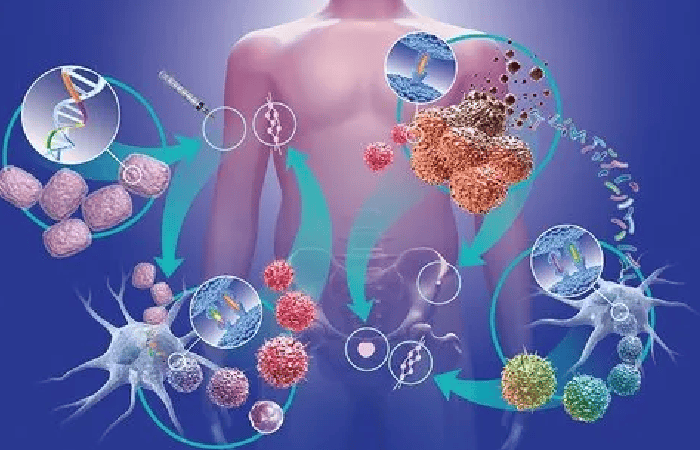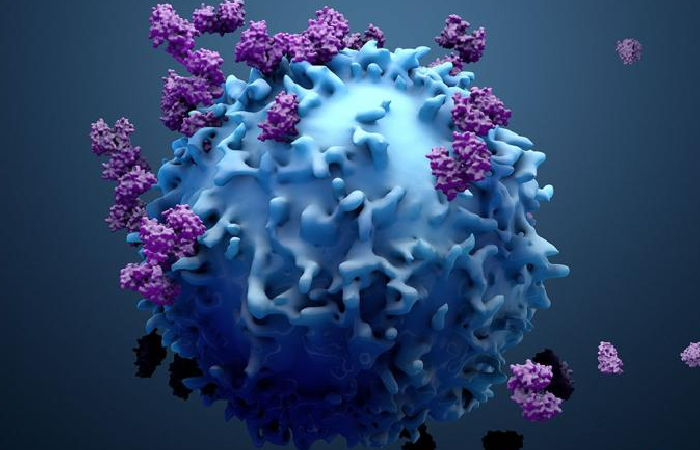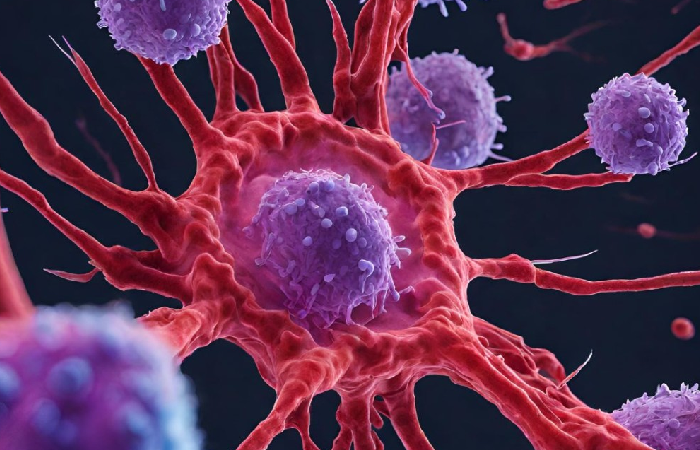Can Immunotherapy Cure Stage 4 Cancer? A Comprehensive Analysis
The last stage of cancer, also known as metastatic cancer, is the extreme stage of the disease. This is an awe-inspiring article that aims at giving the readers very useful knowledge on the potential of using immunotherapy as a treatment for advanced-stage cancers.

Introduction
I am a veteran SEO article writer who has published medical papers for many years. I have attempted to understand a very controversial subject that is a question on the minds of many cancer patients and their families, while the treatment theme is confusing; "Can immunotherapy cure stage 4 cancer?" It is an awe-inspiring article that aims at thoroughly scrutinizing this disputable issue thus giving the readers very useful knowledge on the potential of using immunotherapy as a treatment for advanced-stage cancers.
The last stage of cancer, also known as metastatic cancer, is the extreme stage of the disease where cancer has already been transmitted from its prime site to other parts of the body. In a general way, the traditional treatments for the fourth stage of cancer have been very few, with the main aim is to prolong life and to control the symptoms, but not to heal the disease. Nevertheless, the advent of some new immunotherapies has brought the new hope of targeting advanced cancers patients.
What is Immunotherapy?
The method of immunotherapy entails using the body's own immune system to fight cancer cells and is regarded as a revolutionary way of cancer treatment. While cancer treatments like chemotherapy and radiation therapy are designed to target directly the cancer cells, the concept of immunotherapy is to strengthen or recover the immune system that is best equipped to recognize and eliminate the cancerous cells.
Immunotherapy comes out in such forms as:
-
Checkpoint inhibitors
-
CAR T-cell therapy
-
Cancer vaccines
-
Monoclonal antibodies
-
Cytokines
Every approach here is different but on the whole they have the same goal of kicking the immune system into gear to battle against cancer.

Efficacy of Immunotherapy
The success of immunotherapy and how far it can recover the fourth stage of cancer have always been the core of the matter in terms of research and clinical trials. While it is crucial to recognize that outcomes differ greatly depending on the type of cancer and individual patient factors, there have been some very exciting stories of people getting well.
For example, in 2015, there were inspiring stories about former US President Jimmy Carter who was successfully treated by immunotherapy for metastatic melanoma. After he had a diagnosis of stage 4 melanoma that had already developed in his brain, he received a checkpoint inhibitor, pembrolizumab, by way of treatment. Lightning-fat, he made a public announcement in 2016 that he was cancer-free.
The studies have been finished successfully for the different types of cancers at stage 4:
-
The New England Journal of Medicine has got the results of the study. They say that 52% of the people who had advanced melanoma and who took a combination of two checkpoint inhibitors were still alive after five years.
-
In addition to this, non-small cell lung cancer patients can have an increased overall survival rate when given immunotherapy by a certain percentage as opposed to those on chemotherapy only.
-
Several people with stage 4 kidney cancer have had very long-term periods of remission using immunotherapy.
-
Despite the promise of these findings, it is important to note that immunotherapy does not work for all patients or all types of cancer.
Advancements in Immunotherapy
There are also new things in the field of immunotherapy whose treatment of ticking and stage 4 cancer is just as important. These are some of the treatments that have caught people's eye:
Combination Therapies
It is seen how the combination of immunotherapies with other treatments can increase the effectiveness of each treatment. For example, by using checkpoint inhibitors along with other drugs or radiation, doctors can achieve better results in the treatment of some types of cancer.

Personalized Immunotherapy
Innovations in terms of genetic testing and the identification of potentially relevant biomarkers could provide personalized approaches to immunotherapy. Such a treatment would help to reveal the perfect candidates for the suitable immunotherapies."
Novel Immunotherapy Agents
Among the fields of interest where the most creative and inspiring research is still being done remains the production of experimental immunotherapy drugs. One good example is the use of bi-specific antibodies which can connect not only to the immune cells but also to the cancer cells. This is the case with the clinical trials, which seem to show some positive signs.
Limitations of Immunotherapy
Given that some patients have recovered miraculously by means of immunotherapy, it is important to remember its drawbacks, particularly in a situation of stage 4 cancer:
Variable Response Rates
Immunotherapy is a treatment that is not effective for all the patients as the results vary depending on the type of cancer. Most of the melanomas and lung cancers are readily responding to immunotherapy.
Immune-Related Side Effects
Special side effects can occur as a result of immunotherapy causing an overactive immune response. These side effects start from mild to severe and can affect different body organs.
Delayed Response
Most people then take immunotherapy where the immunity itself involves delayed tumor reduction as opposed to chemotherapy. This naturally becomes quite a burden for patients who have the most progressive diseases.
Resistance
Some cancers can develop resistance against unithermopathy after a while such that they might begin to grow once again even if they were first destroyed.
Immunotherapy by Cancer Type
The success of immunotherapy differs from one cancer to the other. In short, the scheme of things is that with the different cancer types comes the need for a specific way of handling immunotherapy as well as the measurement of its success.
Melanoma
Melanoma is remarked as the kind of cancer that generates most vigorous responses to immunotherapy. Premium technology vaccines remain the standard treatment for melanoma, which is in the advanced stages, but the results may not be the same for all patients, some may develop other sickness and some may experience some other side effects. But it remains successful for some patients with majority of them on a long-term remission with no need to keep taking the drugs and monitoring the disease.

Lung Cancer
In the recent past, immunotherapy has come out as a key tool for non-small cell lung carcinoma, serving both as the single treatment method and as an element of combined therapy with chemotherapy. However, it has been getting significantly improved survival when immunotherapy is added to chemotherapy, albeit only in some patients.
Kidney Cancer
Immunotherapy is considered to be the top therapy for advanced kidney cancer, checkpoint inhibitors being the most effective either as single treatments or in combination with targeted therapies.
Bladder Cancer
There are several drugs for bladder cancer re-added to the biologics that are needed for some patients who have not longer been admitted to the chemotherapy.
Breast Cancer
While immunotherapy has been less effective in treating breast cancer as compared to other cancers, it has been successful for certain subtypes, such as the triple-negative breast cancer.
Colorectal Cancer
Immunotherapy works effectively in a part of colorectal cancers with some particular genetic mutations such as microsatellite instability (MSI-H) or mismatch repair deficiency (dMMR).
7. Conclusion
In summary, despite the fact that immunotherapy has turned out to be very effective in stage 4 cancer in some cases, it should be noted that it cannot be considered a panacea for cancer that has reached an advanced stage. For example, the response from patients is neither strictly positive nor negative. Some patients might be able to permanently overcome the disease while others might use the treatment to lengthen their lives and improve their quality of life but no more elimination is necessary.
Immunotherapy, which is a new stage in cancer treatment, is in a state of rapid development with a multitude of new treatments and combinations being developed and tested. Besides, our expanding knowledge of the immune system and cancer biology is also a promise for immunotherapy to become a way of treating with hope a majority of patients with advanced cancer.
While immunotherapy is no doubt a major curb in cancer treatment, patients seeking cancer care should discuss their matter individually with their health care providers to see if the use of immunotherapy suits their illnesses. Now, the cancer illness is no longer the dreaded disorder it used to be, with immunotherapy squeezing of the advanced cancer cells from the picture.




